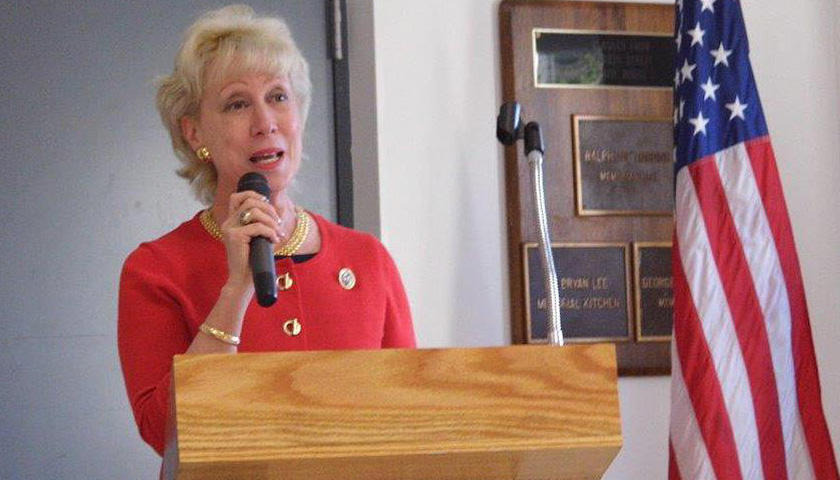A Republican member of the Pennsylvania General Assembly is asking fellow legislators to back a bill she is writing to amend the state’s Equal Pay Law, asserting a gap exists between what men and women earn.
The “wage gap” has long been a subject of contention. State Representative Karen Boback (R-Dallas) cites data from the National Women’s Law Center (NWLC) — a group that is also at the forefront in promoting abortion and supporting transgenderism among children — to suggest serious pay inequity persists.
Data from the NWLC suggests American women make 82 cents for every dollar men earn on average, meaning the average female worker’s annual income comes to $10,157 less than what the average man takes home. Critics of the movement for more stringent equal-pay laws object to hyping this statistic because it disregards the individual decisions — often related to family and childcare — that lead to the pay disparity.
In a memorandum describing her emerging legislation, Boback acknowledges the personal choices that women often make that can slow down their income advancement, resulting in mothers earning 70 cents for every dollar that fathers earn on average. Her solution is essentially to force employers to disregard those choices even when they disrupt a woman’s career track, couching the matter in terms of economic necessity.
“The COVID-19 pandemic has especially exposed working mothers in front-line occupations,” she wrote. “According to the NWLC, mothers with children under 18 are 15.9% of all workers, but they make up 34.8% of registered nurses and 27.7% of child care workers. Indeed, many types of mothers working in front-line occupations earn only a fraction of fathers working in the same jobs.”
Pennsylvania’s 1959 equal-pay statute already prohibits employers from paying employees differently on the basis of sex. Boback’s measure would amend the law to ensure that pregnancy-related circumstances or family and medical leave do not impact a worker’s seniority and that employers can only seek an applicant’s salary history from a prior employer with the permission of that applicant.
The proposed law would also bar employers from punishing a staffer who alleges salary discrimination. It would also hike penalties from a maximum of $200 to a high of $1,000 for those found to violate the statute. Boback also envisions creating an Equal Pay Commission to examine the causes of differences in men and women’s incomes.
Opponents of policies like Boback’s point out that implementation elsewhere has had unwelcome consequences. A 2021 report by Rachel Greszler of the D.C.-based Heritage Foundation observed, for example, that Denmark introduced a system forcing companies to report how much they paid to members of each sex.
Subsequently, wages roughly equalized because employers paid men less rather than paying women more, resulting in no net benefit to the workforce or to the families dependent on earners. Business productivity also suffered.
“That is because rigid pay scales, as opposed to performance-based pay, result in lower productivity,” Greszler wrote. “Economic studies find that productivity increases by 6 percent to 10 percent after companies implement performance-based pay systems, and higher productivity translates into higher pay.”
– – –
Bradley Vasoli is managing editor of The Pennsylvania Daily Star. Follow Brad on Twitter at @BVasoli. Email tips to [email protected].
Photo “Karen Boback” by PA State Association of Township Supervisors.





